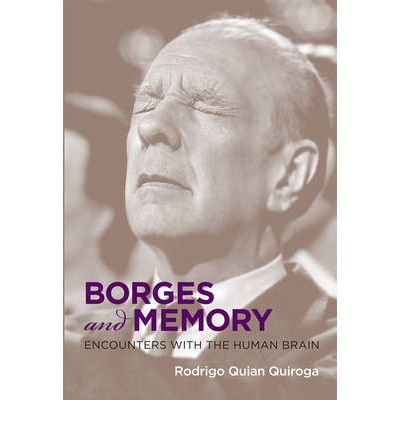Monday
The blog Literary Hub recently shared a fascinating excerpt from Forgetting: The Benefits of Not Remembering, where author Scott Small contends that Argentinian author Jorge Luis Borges anticipates significant neurological breakthroughs in his short story “Funes the Memorious.” He grasped before science did that forgetting is cognitively beneficial. If we didn’t forget, we couldn’t generalize.
Small explains how this works:
No matter how routinized our lives, the continuous alterations to existing memories are vital for us to adapt to our rapidly shape-shifting worlds. Just as the most elegant home remodeling is often a combination of construction on top of demolition, the brain’s optimal solution for behavioral flexibility turns out to be a balance between memory and active forgetting.
Neurobiology, Small says, has been able to study this further since discovering that there are two distinct molecular mechanisms, one for memory and one for forgetting.
In “Funes the Memorious,” a young man has a fall from a horse that leaves him paralyzed. But it also appears to have turned off (neurobiology would now say) his mechanism for forgetting. As a result, he remembers everything:
We, at one glance, can perceive three glasses on a table.; Funes, all the leaves and tendrils and fruit that make up a grape vine. He knew by heart the forms of the southern clouds at dawn on the 30th of April, 1882, and could compare them in his memory with the mottled streaks on a book in Spanish binding he had only seen once and with the outlines of the foam raised by an oar in the Rio Negor the night before the Quebracho uprising.
This leaves Funes, however, without the ability to generalize. As the narrator explains,
He was, let us not forget, almost incapable of ideas of a general, Platonic sort. Not only was it difficult for him to comprehend that the generic symbol dog embraces so many unlike individuals of diverse size and form; it bothered him that the dog at three fourteen (seen from the side) should have the same name as the dog at three fifteen (seen from the front).
Funes observes at one point that “I alone have more memories than all mankind has probably had since the world has been the world.” And because this is so overwhelming, he confines himself to a small dark room, usually without light, to lessen the stimuli and achieve a certain degree of sameness. And even this environment presents him with challenges. The narrator observes,
To sleep is to turn one’s mind from the world; Funes, lying on his back on his cot in the shadows, could imagine every crevice and every molding in the sharply defined houses surrounding him. (I repeat that the least important of his memories was more minute and more vivid than our perception of physical pleasure or physical torment.).
Small observes that Borges’s short story is an illustration of
how literary insight into the workings of the mind often predates scientific knowledge, Borges recognized that memory needs to be balanced by normal forgetting in order for a person to cognitively generalize. Without forgetting, young Funes could not generalize from one sensory experience to the next….Without forgetting, Funes found that his only respite from life’s constant fluctuations was to routinize his life and to minimize sensory overload by banishing himself to his dimly lit, quiet, and never-changing bedroom.
Borges also anticipated breakthroughs into autism. Dr. Leo Kanner, now considered the father of child psychiatry, was to conclude that children with autism differ from others because they are “overly fixated on parts.” Small mentions several of his examples:
Charlie, for example, would lash out if the dining room table was not set identically each night. His family was allowed to sit down to eat only after the silverware had been reset precisely as he remembered it. Susan became transfixed by and anxious about a new crack in a wall so minuscule that it had gone unnoticed by the rest of the family. Richard’s inflexibility was most evident during his bedtime routine, which he insisted follow an exact, repetitive sequence of events.
Contrast this with the way that most people operate:
Most of us will walk by a familiar and fully stacked bookshelf and scarcely notice if a single volume was missing or has been transposed with another. Seeing the forest for the trees, or in this case the bookcase for the books, is what psychologists sometimes call generalization: a cognitive ability that allows us to extract general patterns from component parts, to synthesize and integrate parts into a unified whole.
Like Funes, children with autism insist on sameness because otherwise everything seems to be changing all the time and the chaos overwhelms them. They can’t forget the way others do.
Small concludes that recent neurological breakthroughs and recent studies of autism are bearing out Borges’s observations:
Researchers investigating the new science of forgetting have shown that the implicit assumption underpinning Borges’s science fiction was right: we depend on our normal forgetting to cognitively generalize. More than just validating Borges’s assumption, science is beginning to explain why and how forgetting is required for healthy cognition. Scientists who investigate animal models have relied on research in mice and flies to validate and explain Borges’s insight. But clinical scientists investigating autism have contributed to the broader understanding of how our minds benefit from forgetting, of how forgetting helps us to cognitively engage our ever-fluctuating worlds.
Aristotle wrote that literature is truer than history. Apparently it is also giving biology, neurobiology, and psychology a run for their money.
